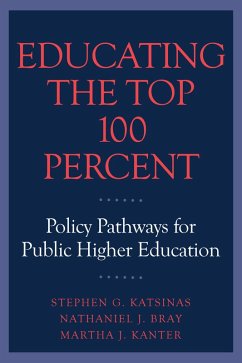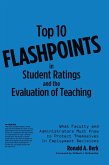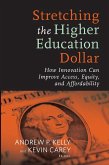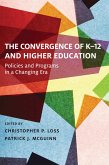Steve Katsinas is director of the Education Policy Center (EPC) at The University of Alabama, and professor of higher education and political science. Katsinas earned his bachelor's in history from the University of Illinois, master's in history and doctorate in higher education from Southern Illinois University. While working for Congressman Paul Simon, he wrote the background report for the first hearings of a congressional committee on access of Hispanics to higher education. After an initial stint at Alabama, he worked at Miami-Dade College and taught at Oklahoma State University and the Universities of Toledo and North Texas, before returning in 2005 to direct EPC. Drawing upon visits to five hundred colleges in forty-four states, and work with projects of the Ford, Kellogg, Jack Kent Cooke, and Gates foundations, Katsinas writes on college classifications, access, finance, transfer, and student aid. He has presented at the White House five times and at the departments of Education and Agriculture six times each. The EPC has published twenty studies of Pell Grants since 2010, and this work has been recognized nationally. In 2018, he presented at convenings on HBCUs sponsored by the National Urban League and ETS. He is a senior fellow with College Promise.
Dr. Nathaniel J. Bray is a professor of higher education administration and associate director of the Education Policy Center at the University of Alabama, and a senior fellow with College Promise. His work focuses on issues of financial access to higher education through examining institutional, state, and federal policies and their outcomes. Dr. Bray has over fifty publications on college and university functioning, and he has spent multiple terms on the editorial boards of such publications as the Journal of College Student Development, Innovative Higher Education, Journal of Collective Bargaining in Higher Education, Journal of General Education, Journal of Higher Education Athletics and Innovation, and the advisory board of the ASHE Higher Education Report Monograph series. His work has led to funded research projects on topics such as return on higher education investment, evaluation of transfer systems, Pell Grants, as well as an NSF Broadening Grant looking at community college faculty course revision in introductory STEM field courses. Prior to his employment at Alabama, he worked as research analyst in institutional research and planning analysis at Virginia Tech. Dr. Bray holds a PhD and MEd from Vanderbilt University in higher education administration, and a BA in biology from Harvard College.
Dr. Martha Kanter is chief executive officer of the College Promise Campaign, a national nonprofit, nonpartisan movement to increase college opportunity and student success, leveraging Promise scholarships and wrap-around supports in hundreds of communities across forty-seven states and thirty-three statewide programs. She promotes policies that apply evidence-based education interventions, financing models, and behavioral incentives to raise America's high school and college graduation rates for the college, career, and community success of our nation's students. From 2009 to 2013, Dr. Kanter served as US under secretary of education, overseeing all federal postsecondary policies and programs. She led the successful implementation of the Direct Student Loan program, resulting in a 50 percent increase in college enrollment for low-income Pell Grant recipients, growing from 6 to more than 9 million students. From 1993 to 2009, Dr. Kanter was president of De Anza College and then chancellor of the Foothill-De Anza Community College District in Silicon Valley, California. Previously, she was vice chancellor for policy and research for California Community Colleges. Dr. Kanter holds an EdD from the University of San Francisco. Her education career began in the ninth grade, as an intern teaching reading to third graders at Boston's South End House. This was followed by teaching economically disadvantaged high school students in a church basement.









